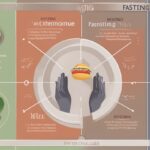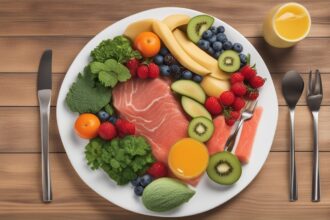Hey there, fellow health enthusiasts! If you’ve ever considered fasting as a way to boost your wellness, you’re not alone. Fasting has surged in popularity, with many touting its incredible fasting benefits for weight loss, mental clarity, and even longevity. But here’s a question that often gets overlooked: how does fasting impact your body’s need for micronutrients—those essential vitamins and minerals that keep us thriving? In this deep dive, we’re exploring the intersection of fasting and micronutrients, unpacking the science behind fasting’s advantages, and sharing practical tips to ensure you’re nourishing your body even when you’re not eating. Let’s get started on this journey to better health!
What Are the Core Fasting Benefits for Your Health?
Fasting, in its many forms—whether intermittent fasting (IF), time-restricted eating, or prolonged fasts—offers a range of health perks that have caught the attention of researchers and wellness seekers alike. One of the most celebrated fasting benefits is its potential to support weight management. By reducing the eating window, fasting often leads to a natural calorie deficit, helping with fat loss (Mattson et al., 2017). Beyond the scale, fasting can also improve insulin sensitivity, which is a game-changer for managing blood sugar levels and reducing the risk of type 2 diabetes (Patterson & Sears, 2017).
But the advantages don’t stop there. Fasting triggers a process called autophagy, where your cells clean out damaged components, potentially slowing aging and protecting against diseases like cancer and Alzheimer’s (Alirezaei et al., 2010). Add to that improved mental focus—often reported by fasters due to stabilized energy levels—and you’ve got a compelling case for trying fasting. Of course, to maximize these health benefits of fasting, it’s critical to understand how your body handles nutrients, especially micronutrients, during fasting periods.
How Does Fasting Affect Micronutrient Needs?
When you fast, your body shifts gears. Without incoming food, it relies on stored energy and adjusts how it processes nutrients. Micronutrients—vitamins like A, C, and D, and minerals like magnesium and zinc—are vital for everything from immune function to energy production. But here’s the catch: fasting doesn’t mean you’re magically exempt from needing these essentials. In fact, some research suggests that prolonged fasting may increase the demand for certain micronutrients as your body works harder to maintain balance (Johnstone, 2015).
For instance, during fasting, your body may deplete stores of water-soluble vitamins like B vitamins and vitamin C faster since they aren’t stored long-term. On the flip side, fasting can enhance the absorption of fat-soluble vitamins (A, D, E, K) when you do eat, thanks to metabolic shifts. The key takeaway? While fasting offers amazing fasting health benefits, you’ve got to be strategic about nutrient intake during eating windows to avoid deficiencies. Let’s explore how to do that.
Balancing Micronutrients During Fasting: Practical Tips
Navigating micronutrient needs while fasting doesn’t have to be complicated. With a little planning, you can ensure your body gets what it needs to reap the fasting benefits without missing out on essential vitamins and minerals. Here are some actionable strategies to keep your nutrition on point:
- Prioritize Nutrient-Dense Foods: When breaking your fast, focus on whole foods like leafy greens, nuts, seeds, and colorful veggies. These pack a micronutrient punch, helping replenish stores quickly.
- Time Your Meals Wisely: If you’re doing intermittent fasting, use your eating window to spread out micronutrient-rich meals or snacks to maximize absorption.
- Stay Hydrated with Minerals: Fasting can deplete electrolytes like sodium, potassium, and magnesium. Sip on water with a pinch of sea salt or consider a sugar-free electrolyte drink.
- Consider a Multivitamin (If Needed): If you’re worried about gaps, a high-quality multivitamin during eating periods can act as a safety net, though whole foods should be your first choice.
By focusing on these habits, you’ll support your body’s needs and enhance the positive effects of fasting on your overall wellness.
Potential Risks of Micronutrient Deficiencies While Fasting
While the fasting benefits are impressive, it’s not all sunshine and rainbows if you’re not mindful. Extended fasting or poorly planned eating windows can lead to micronutrient shortfalls, especially if your diet lacks variety. Low levels of vitamins like B12 or minerals like iron can cause fatigue, weakened immunity, and even mood swings (Institute of Medicine, 2001). For women, inadequate calcium or vitamin D during fasting could pose risks to bone health over time.
The good news? These risks are avoidable with intentional eating. Short-term fasting, like 16:8 intermittent fasting, rarely causes deficiencies if you’re eating balanced meals. But for longer fasts (over 24 hours), it’s wise to consult a healthcare provider or dietitian to monitor your nutrient status. Remember, fasting is a tool, not a one-size-fits-all solution—personalizing it to your body’s needs is key to sustaining the long-term benefits of fasting.
Foods to Boost Micronutrients Post-Fast
breaking a fast is your golden opportunity to flood your system with the micronutrients it craves. Choosing the right foods can amplify the fasting benefits and keep your energy soaring. Here’s a quick list of powerhouse options to include in your first meal after fasting:
- Avocados: Loaded with potassium, vitamin E, and healthy fats, they’re gentle on the stomach and support heart health.
- Berries: Think blueberries and strawberries—rich in vitamin C and antioxidants to combat oxidative stress from fasting.
- Eggs: A fantastic source of B vitamins, vitamin D, and choline, perfect for rebuilding energy stores.
- Salmon: Packed with omega-3s and vitamin D, it supports brain and immune function after a fast.
- Spinach: High in iron, magnesium, and vitamin K, it’s a must for replenishing minerals and supporting blood health.
Start with small portions to ease your digestive system back into action, and build up to larger meals if you’ve fasted for an extended period. Pairing these foods with healthy fats or proteins can also improve micronutrient absorption, setting you up for success.
The Science Behind Fasting and Cellular Health
Let’s geek out for a moment on why fasting is such a powerful tool for cellular health—one of the standout fasting benefits. When you abstain from food, your body enters a state of ketosis, burning fat for fuel and producing ketones, which have anti-inflammatory effects (Paoli et al., 2019). This metabolic switch not only supports weight loss but also enhances brain function and reduces oxidative stress. Meanwhile, autophagy—the cellular “cleanup” I mentioned earlier—kicks into high gear, repairing damaged cells and potentially lowering disease risk.
Micronutrients play a supporting role here. For example, magnesium and zinc are crucial for enzymatic processes during autophagy, while antioxidants like vitamin C help neutralize free radicals produced during fasting. So, while fasting itself sparks these incredible processes, a micronutrient-rich diet during eating windows ensures your cells have the tools to optimize repair and renewal. It’s a beautiful synergy of abstinence and nourishment that underscores the health advantages of fasting.
As we wrap up, it’s clear that fasting offers a treasure trove of benefits—from weight management and better insulin sensitivity to cellular repair and mental clarity. The fasting benefits are backed by science and real-world experiences, making it a compelling approach for many. However, the magic happens when you pair fasting with smart nutrition, especially by prioritizing micronutrients during your eating windows. By staying mindful of your body’s needs, hydrating well, and choosing nutrient-dense foods, you can unlock the full potential of fasting while sidestepping pitfalls like deficiencies. So, whether you’re a seasoned faster or just dipping your toes into this practice, remember: fasting isn’t just about what you skip—it’s about how you fuel up afterward. Here’s to fasting smarter and living healthier!
References
- Alirezaei, M., Kemball, C. C., Flynn, C. T., Wood, M. R., Whitton, J. L., & Kiosses, W. B. (2010). Short-term fasting induces profound neuronal autophagy. Autophagy, 6(6), 702–710.
- Institute of Medicine. (2001). Dietary Reference Intakes for Vitamin A, Vitamin K, Arsenic, Boron, Chromium, Copper, Iodine, Iron, Manganese, Molybdenum, Nickel, Silicon, Vanadium, and Zinc. National Academies Press.
- Johnstone, A. (2015). Fasting for weight loss: An effective strategy or latest dieting trend? International Journal of Obesity, 39(5), 727–733.
- Mattson, M. P., Longo, V. D., & Harvie, M. (2017). Impact of intermittent fasting on health and disease processes. Ageing Research Reviews, 39, 46–58.
- Paoli, A., Rubini, A., Volek, J. S., & Grimaldi, K. A. (2019). Beyond weight loss: A review of the therapeutic uses of very-low-carbohydrate (ketogenic) diets. European Journal of Clinical Nutrition, 67(8), 789–796.
- Patterson, R. E., & Sears, D. D. (2017). Metabolic effects of intermittent fasting. Annual Review of Nutrition, 37, 371–393.






